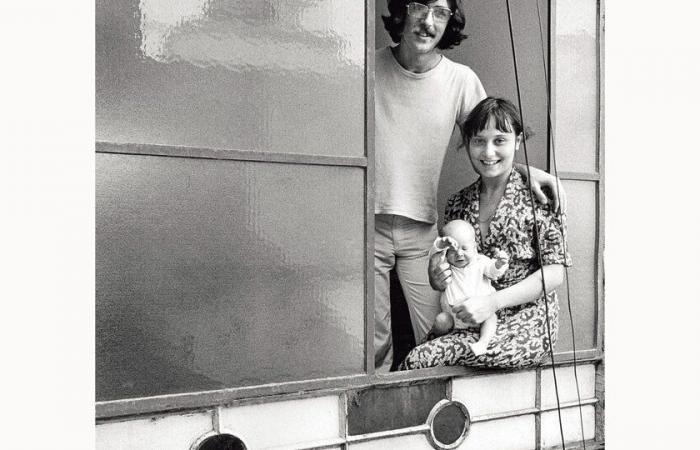Schopenhauer wrote that “the facts of history are mere configurations of the apparent world, with no reality other than that derived from individual biographies… There is no system of history, as there is of the sciences that are authentic: there is an endless enumeration of facts.” individuals.” This is the case of this book Murder me. Rock and feminism in the 70s. Haughtiness and even arrogance of doubt. There is some of this in the text, thought and written with my heart in my hand. The other side that is shown in the work of our creator is the illusion of a biographical and autobiographical pact. It is a book by two authors that the interested party signs from the choice of divergent directions: facts and real dialogues, which at the same time act as an amalgam of monologues in search of the solution that understands and explains, that clarifies what with the voice proclaims itself… Reading these pages with intense slowness, an incessant game of false clumsiness, of skills that want to pass as carelessness, is transmitted in the line spacing, configured without rigor. There is a manifest sadness of treble clefs that slide precise memories, crucial memories like the scream that wants to be a song.
“One fine day, after an almost boxing scene orchestrated by my mother, I smashed a television against the wall. Charly took me out of there with what I was wearing and we went into a bar to think about where, how and what we would live with from then on. We were only perfectly clear that we were fleeing our homes to be together… I was pregnant, nothing was happening with Sui Generis yet and we didn’t have a penny to pay the advance. “Pipi Correa gave us a loan and with that money we were not only able to enter our cabin but also pay for the surgery to terminate the pregnancy.”
The book gracefully combines desperate memory with the act of faith in oral writing, light but deep in concept, in the clarity of the prose and in the precision of the speech. Without a doubt, it is a musical book, not only because of the euphonious virtues of the prose, but because of the very structure of its composition, composed of an unlimited number of themes that come and go, and merge in harmony. In this poetic music of murder me, dream and reality complement each other. The book prefers to represent the honest vision of the bleeding mirror, the vicissitudes of time lived, the inner soliloquy of the protagonists… Yorio’s style can be understood as anarchic or light, but it is still orderly, vigorous. There are never any boasts that harm it, on the contrary, the result is lively. It is a beautiful book, painfully illustrated with beautiful photos where the spaces play as metaphors for the content… When Borges analyzes Enrique Banchs, he explains that it can happen “that a book whose fundamental value is perfection may be less commented on than a book that shows the stigmas of adventure or mere disorder…” Perhaps this is the case of murder me, this book by Yorio, whom it is pleasant to imagine going through the days of life in a changing reality that is fundamentally consolidated in the music that sustains us all. It is the painting of a time; the portrait of characters crossing an unexpected space in which battles are paid with punishments and slights. Perhaps the streets of vertigo that do not measure decisions or disciplines are the catalogs of these events. Yorio avoids an ordered chronology so that the reader captures the dizzying world that squeezes the transformative will. In the style of the French Violette Leduc, each action involves reflection. It is the suffocation and torment of the written word, which the reader obtains and preserves. Therefore, according to the American Walt Whitman, this copy is not made up of pages of paper, but of the life of a person in conflict. Everything is simple and direct. The author is far from trickery or double play, she throws the cards on the table without speculating. That’s how things were, period. The firm attitude makes the reader become an accomplice friend and accompany Yorio to the final point. This is an essential book to delve into the splendid years of rock music in Argentina. Restlessness is only legitimacy, where honesty, the distracted and folksy, the critical, the fallible prevail; a daring spirit honoring love, no less. Almost a mea culpaevocative, wrapped in the ark of genuine purity.
“Fueled by spiritual hunger and cocaine, I was able to stay awake for three days reading a book. Then she came back to my house, and the next day I felt like a monster. Guilty, ugly by drugs, completely alone. “She needed a month to recover.”
A flaming car that slides on the rails of restlessness, the eventual and the random, breaking patterns. This is the merit. That’s why the book is read in one sitting. In addition to the main co-star, Charly García, the volume wanders around León Gieco, Miguel Grinberg, Nito Mestre, Miguel Mateos, Sui Generis, Porsuigieco, the usual unknowns, and all those who filled that golden period with tremor; There is also no shortage of martial books from that time, such as Hopscotch, Bradbury… In addition, there are cheap pensions, good days, bad days, fights, children, perfidies, revenge, regrets, uncertainties, confusions, limitations, expiations, unavoidable stories, some hells, a lot integrity, and the enormous effort of a single woman with guts surviving in the beginnings of national rock. Phenomenal adventure of these veneers, loaded with so much intelligence and sensitivity…


